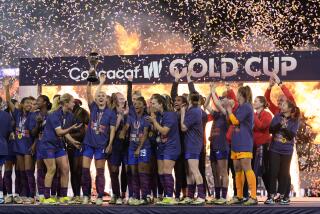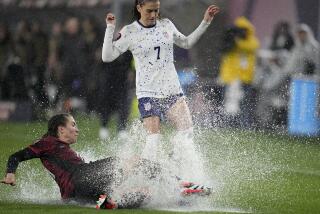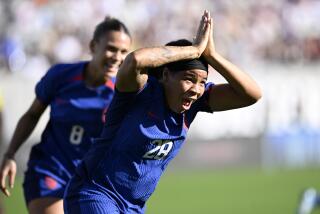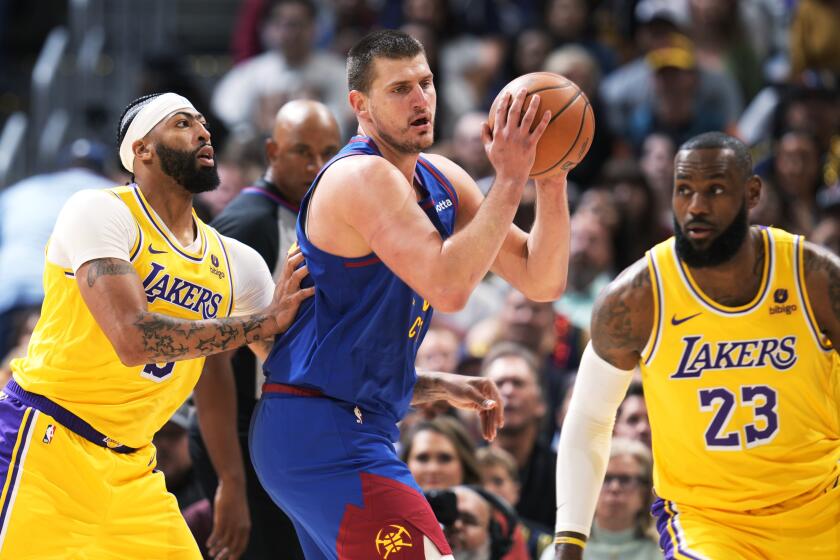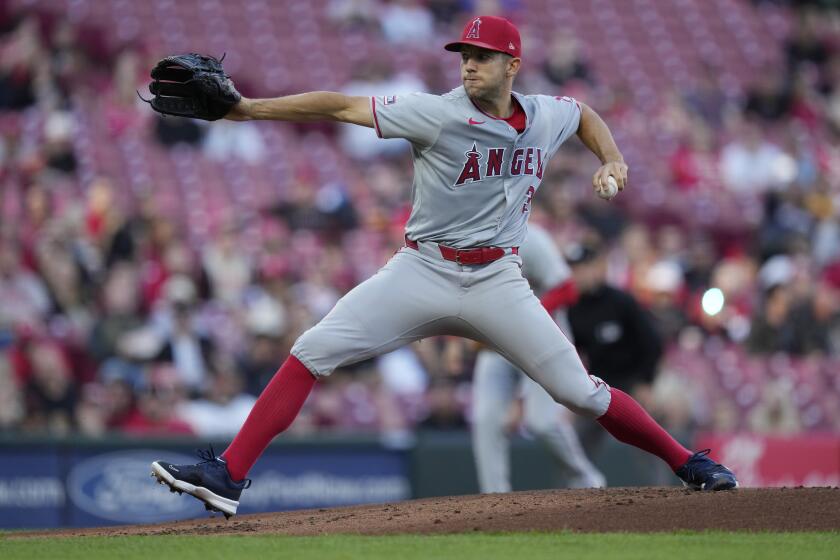Women’s World Cup to go forward on artificial turf
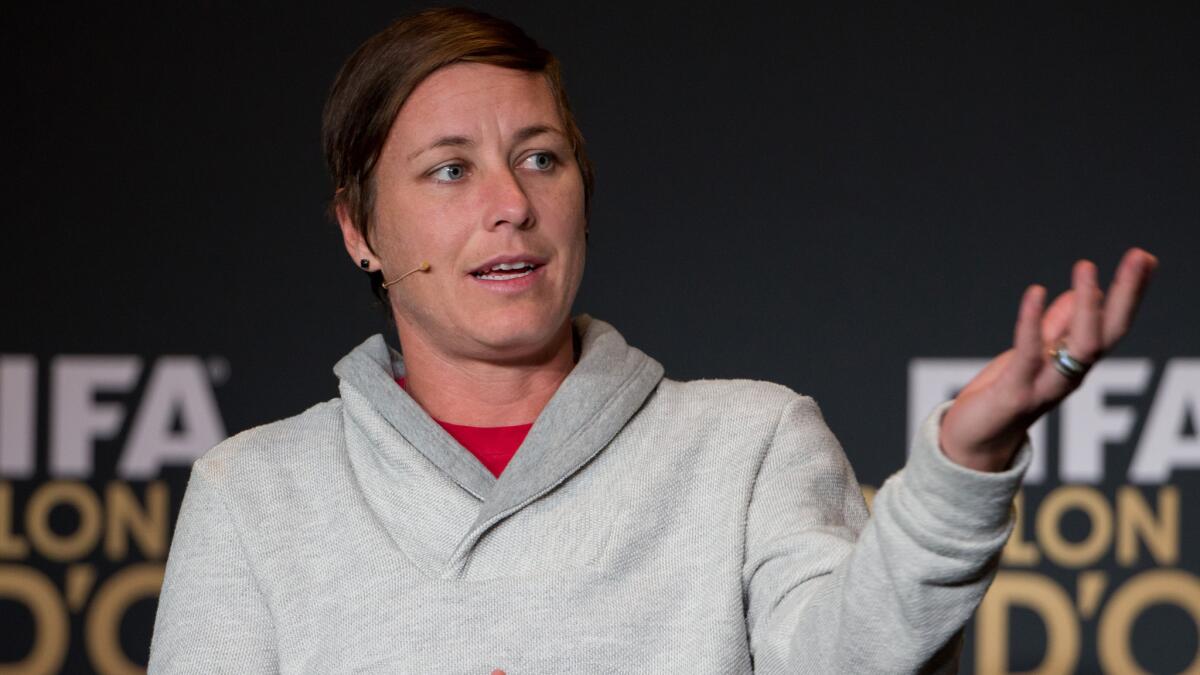
A coalition of women’s soccer players led by U.S. star Abby Wambach has withdrawn its gender discrimination suit against FIFA and will play this summer’s World Cup in Canada on artificial turf.
The men’s tournament has always been played on grass and in their suit, filed before the Human Rights Tribunal of Ontario last fall, the women alleged that a World Cup played on artificial turf would alter the game and heighten the chance of injury. And that, they said, was discriminatory.
But FIFA and the Canadian Soccer Assn. refused to consider the use of grass fields. So on Wednesday, with the start of the tournament less than five months away, the women said they were dropping their complaint to begin focusing on the games.
The World Cup kicks off June 6 in Edmonton and will conclude July 5 at Vancouver’s BC Place.
“While the lawsuit did not end with the grass fields the players deserve, I think it was a success in many ways -- including highlighting how unacceptable it would be to play a World Cup final on the existing BC Place carpet,” attorney Hampton Dellinger of the Washington, D.C., law firm Boies Schiller & Flexner said in an email.
“The legal protest showed FIFA and other sports organizations that female athletes will not passively and silently accept continuing gender discrimination in sports.”
Dellinger said the legal action produced other positive results. The surface at BC Place will be replaced, for example, and goal-line technology will be used for the first time in a women’s World Cup. FIFA also announced that the 2019 Women’s World Cup -- which will likely be staged in either France or South Korea -- will be held on grass.
FIFA secretary general Jerome Valcke, who spearheaded his organization’s battle to keep the tournament on artificial turf, said it’s time for FIFA and the players to unite and promote the event.
“What was very clear from the meetings with the players was their desire and enthusiasm about making this the greatest FIFA Women’s World Cup ever and to ensure that they have the best possible conditions to perform well,” he said in a statement. “This is a goal they share with FIFA and we are totally committed to providing the best possible surface to enable everyone to enjoy a great footballing spectacular.”
Wambach headed a group of several dozen top women’s players who protested FIFA’s insistence on artificial fields, contending balls behave differently on turf than on grass. Injuries and fatigue are also more common on artificial fields, they said.
Wambach was joined in the complaint by U.S. teammate Alex Morgan, Brazil’s Marta, Spain’s Veronica Boquete and Germany’s Nadine Angerer and Nadine Kessler, the last two women’s world players of the year.
The campaign also drew support on social media, with actor Tom Hanks and Laker star Kobe Bryant rallying to the players’ side.
“Our legal action has ended,” Wambach said in a statement. “But I am hopeful that the players’ willingness to contest the unequal playing fields -- and the tremendous public support we received during the effort -- makes the start of even greater activisim to ensure fair treatment when it comes to women’s sports.”
More to Read
Get our high school sports newsletter
Prep Rally is devoted to the SoCal high school sports experience, bringing you scores, stories and a behind-the-scenes look at what makes prep sports so popular.
You may occasionally receive promotional content from the Los Angeles Times.

